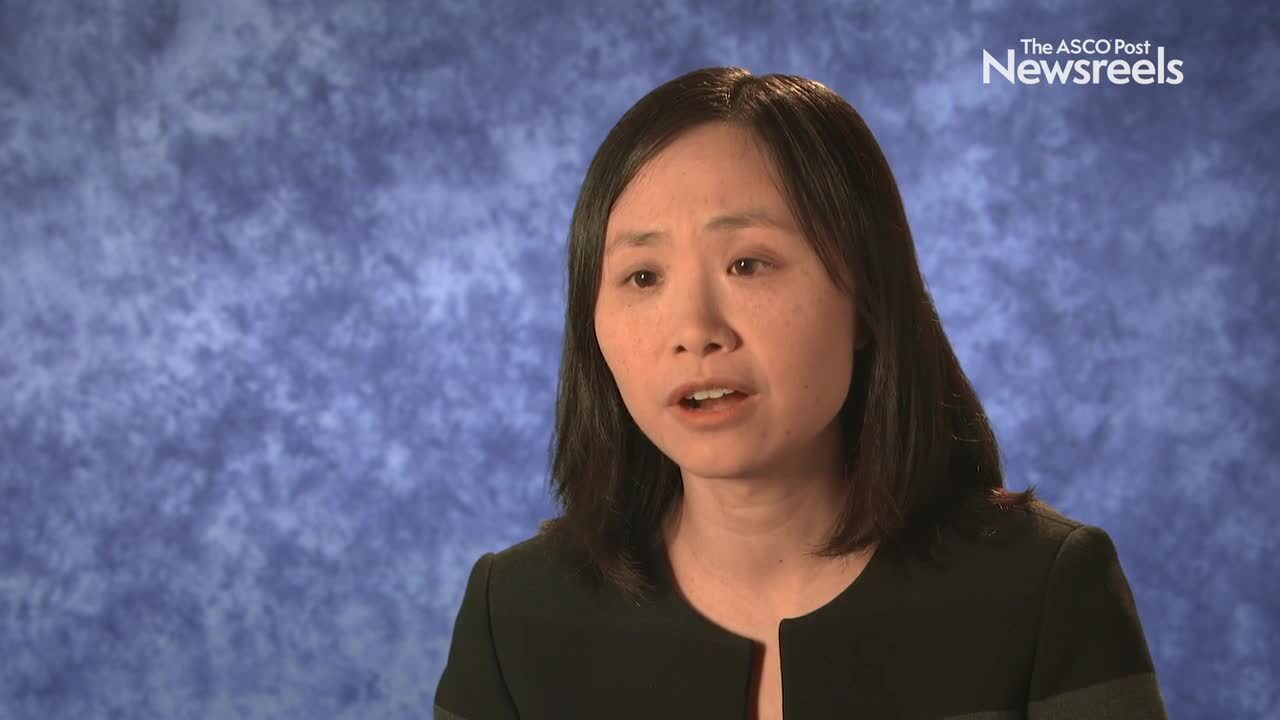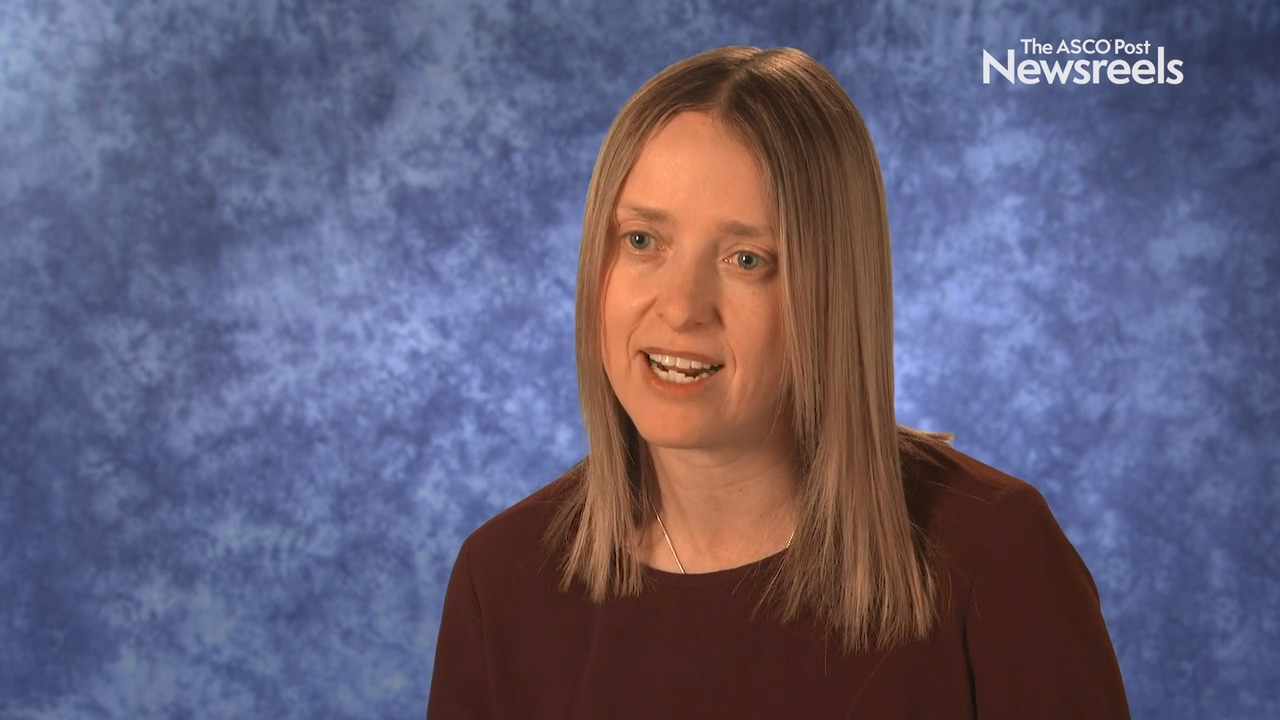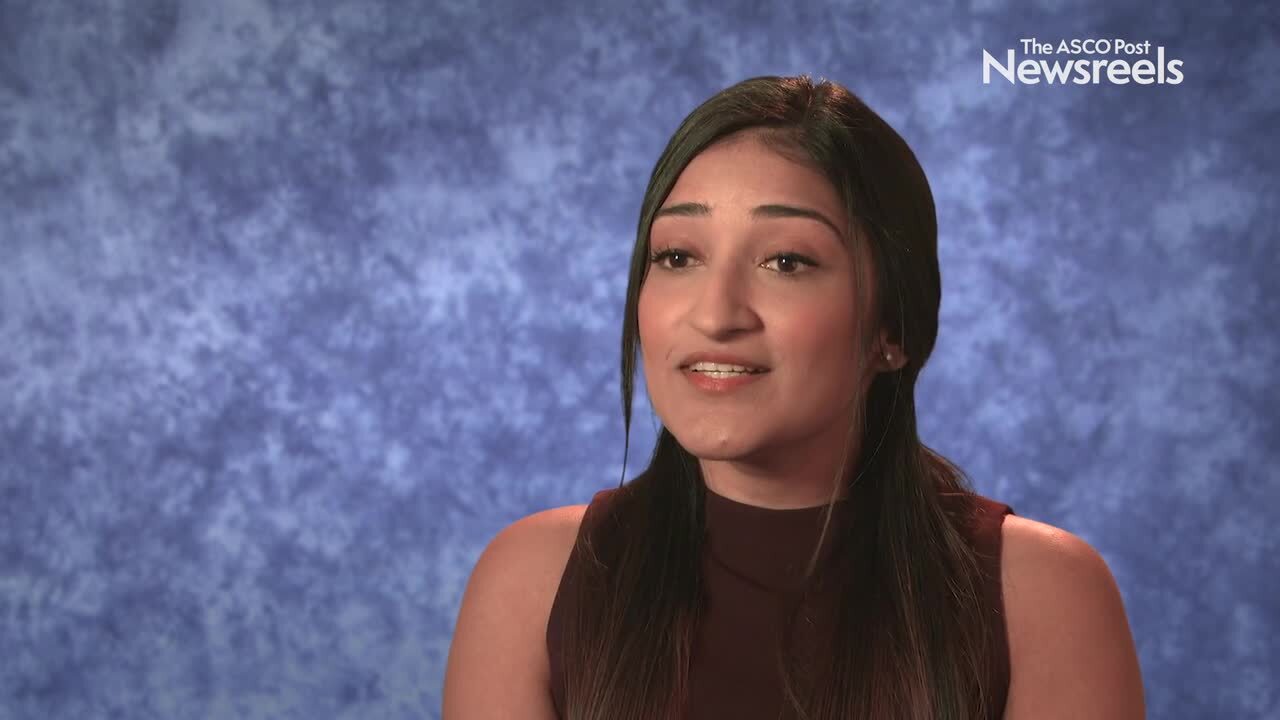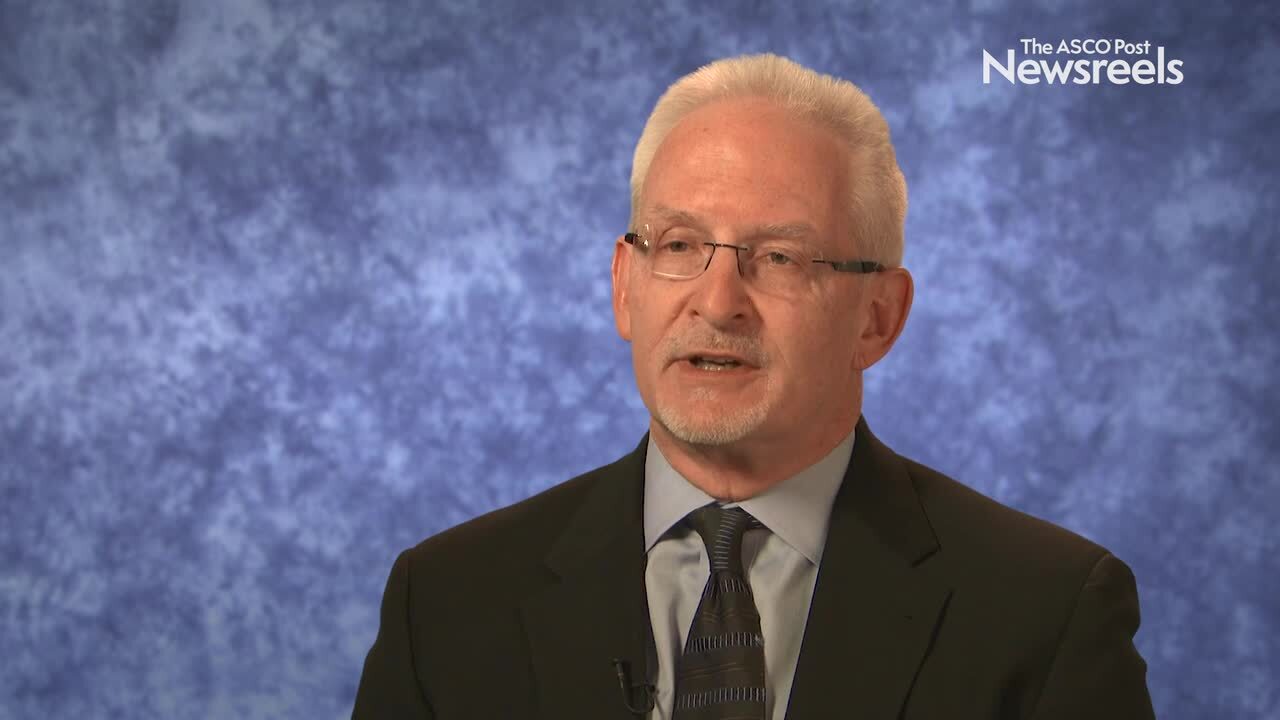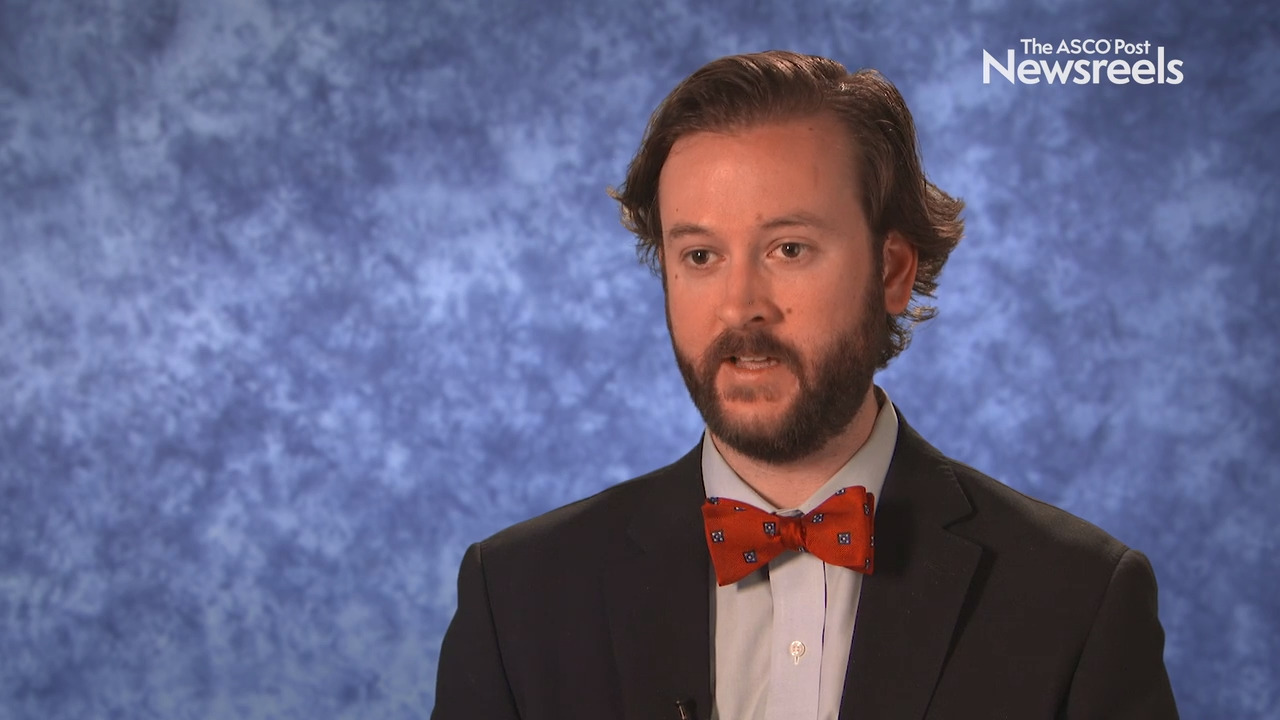Ruqin Chen, MB, on Lung Cancer Treated With Immune Checkpoint Inhibitors: Survival Outcomes and Clinical and Molecular Features
2019 Multidisciplinary Thoracic Cancers Symposium
Ruqin Chen, MB, of the Mayo Clinic Florida, discusses early study findings that show molecular profiling with NF1, CD79a, and AKT3 could potentially improve prediction of progression-free survival in patients with lung cancer who are receiving immunotherapy.
Jing Zeng, MD, of the University of Washington, discusses upstaging disease from stage III to stage IV, which can occur with repeat PET and/or CT scans for patients with locally advanced NSCLC, and the need for clinicians to stage disease properly to ensure appropriate treatment.
Leora Horn, MD, of Vanderbilt University Medical Center, discusses the progress made treating extensive-stage small cell lung cancer, improvements in progression-free and overall survival, and the fact that it’s still difficult to determine which patients will benefit most from immunotherapy.
Shraddha M. Dalwadi, MD, MBA, of Baylor College of Medicine, discusses the nearly 12% of potentially curable patients with stage I NSCLC who do not receive treatment, the various socioeconomic reasons why, and how some patients may benefit from minimally invasive therapies (Abstract 127).
Mark K. Ferguson, MD, of the University of Chicago Hospital, discusses frailty and loss of muscle tissue, which are common among patients with lung cancer. These conditions are linked with decreased survival as well as increased surgical complications, chemotherapy toxicity, and cost of care.
J. Fletcher Drogos, MD, of Rush University, discusses study findings on overall survival and toxicity among patients who undergo multiple radiation treatments for lung cancer.
